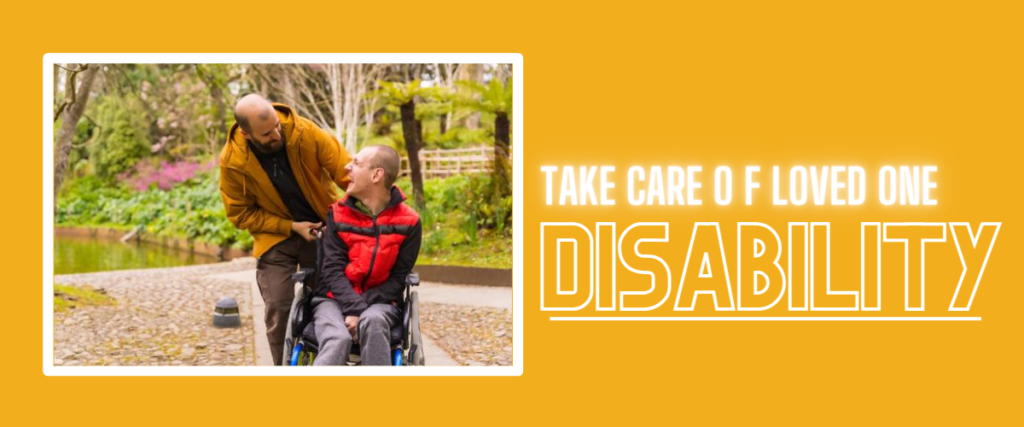Caring for your loved one, especially those with a disability, shows your love and compassion. However, you might be experiencing challenges along the way. For example, you might not be physically ready to assist them in their day-to-day routine.
You might also feel exhausted and anxious about what to do, especially if you’re the lone caregiver.
If these are just among the issues you experience, read on to learn how to care for your loved one with a disability:
- Be Informed
There are many types of disabilities.
Since different disabilities present various challenges, it’s vital to educate yourself about the disability you and your loved one are dealing with. Learning how to care for someone with a particular disability is crucial since you can easily determine when and how you’ll provide support.
For example, a mentally disabled person might not require similar help to someone with physical challenges. This is because mental disabilities affect how one thinks, while physical challenges might not interfere with one’s thinking.
That said, the help these individuals require differs by a considerable margin. It, therefore, it’s essential to learn more about the issue you’re dealing with to offer practical assistance.
Luckily many training options are available, and obtaining a caregiver certification might be easier than you think. Getting certified in a specific disability ensures you are knowledgeable and ready to assist your loved one in the best way possible.
- Reach Out To Community Resources
Many government and non-governmental organizations offer disability support. These platforms provide food, health care, financial assistance, guidance and canceling, and transportation.
Disabled people need more health checkups and medicine than those without disabilities.
This means the caregiver must be able to provide everything their disabled loved one requires to make their life easy.
That is why it’s vital to seek help from different organizations if you can’t provide everything your loved one needs.
- Avoid Making Assumptions
Disability isn’t inability. Therefore, avoid assuming your disabled loved one always requires help. For example, suppose you’re supporting someone in a wheelchair. That doesn’t mean they’ll always need you to do everything for them.
Determine their challenges and limit your assistance to that. In case of anything else, wait until they request your help instead of jumping in all the time.
Avoiding making assumptions also helps your loved one to feel empowered. They need to understand you see their capability to perform some personal duties.
Disabled people should be treated as equals. Unfortunately, this is all jeopardized when you assume they constantly need your help and can’t do things independently.
- Take Care Of Yourself
Taking care of a disabled person doesn’t entirely revolve around them. You, too, should take care of yourself to avoid excess stress. While helping your disabled loved one might be a sign of how compassionate you can be, it’s a tremendously challenging sacrifice.
Therefore, you should take care of yourself and avoid neglecting your well-being.
For example, you should find time to read a book, exercise, and sleep well. You should also take a few days and go on a vacation to unwind.
If necessary, you should reach out to an in-home caregiver who can assist you with caring for your loved one when you need to care for yourself.
- Get A Support System
Other family members and friends can help you take care of your disabled loved one. If you think they’re reluctant, it might be because they don’t know how to help. In that case, it’s essential to communicate about the help you need and how they can carry it out.
You and your disabled loved one should also consider joining a local or online support group where you can draw support and encouragement from others.
You can also gather more information on overcoming challenges and being strong from people who have the same experience. Sometimes, you might also need counseling when things get tricky.
When taking care of a loved one with a disability, it’s imperative to broaden your support system. In this case, you should work closely with a psychologist who can advise you on what to do in different instances.
Councilors are also supportive when you need to pour out your heart to a person who doesn’t judge you.
- Share Responsibilities
Getting support is one thing, and sharing responsibility is another. Help is offered by someone willing to, while commitment means one’s compelled to perform a particular duty. Suppose you’re supporting a disabled parent.
In that case, you should share responsibilities with siblings.
For example, if one of your siblings lives far away, have them pay medical bills since they can’t be around to provide physical or emotional help.
If your other sibling has small kids, ask if they can prepare food for the parents. Caring for a disabled person is challenging and tiring, so you’ll need as much help and support as possible.
Final Thoughts –
Caring for a disabled person is a noble deed. It presents challenges and difficulties for both the patient and the caregiver. A slight mistake or misunderstanding of handling yourself and the patient can harm the patient and cause burnout.
It’s, therefore, vital to understand how to go about the process to ensure you and your loved one are on the same page. The tips above can serve as your guide to do this effectively.

